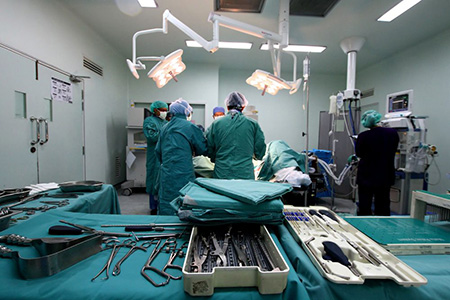Brain surgery is one of the most delicate procedures in medicine. At EPIOM, we play a crucial role in these operations through our neuromonitoring services. Our main goal? To help protect the patient’s cognitive function.
Cognitive function includes things like memory, thinking skills, and the ability to process information. These are the functions that make us who we are. During brain surgery, there’s always a risk of affecting these important abilities. That’s where neuromonitoring comes in.

Here’s how we use neuromonitoring to safeguard cognitive function during brain surgeries:
We start by mapping the brain before and during surgery. This helps surgeons know which areas to avoid. Throughout the procedure, we keep a close eye on brain activity, looking for any signs that might indicate a risk to cognitive function. If we notice any concerning changes, we alert the surgeon immediately, allowing for quick adjustments to prevent potential damage.
In some cases, we can perform simple tests during the operation to check cognitive function, giving us even more information to work with. After the surgery, we can help assess cognitive function to ensure everything is working as it should be.
Our team includes board-certified neurologists who specialize in this kind of monitoring. They work hand-in-hand with surgeons to provide the best possible care for each patient.
We’ve been providing these services in San Antonio for nearly two decades. Over the years, we’ve seen how neuromonitoring has helped improve outcomes for many brain surgery patients.
If you or a loved one is facing brain surgery, don’t hesitate to ask your doctor about neuromonitoring. It’s an important step in protecting cognitive function and ensuring the best possible outcome. At EPIOM, we’re always here to answer any questions you might have about this crucial service. Learn more at: https://epiomneuro.com.
View Our Featured Video:
